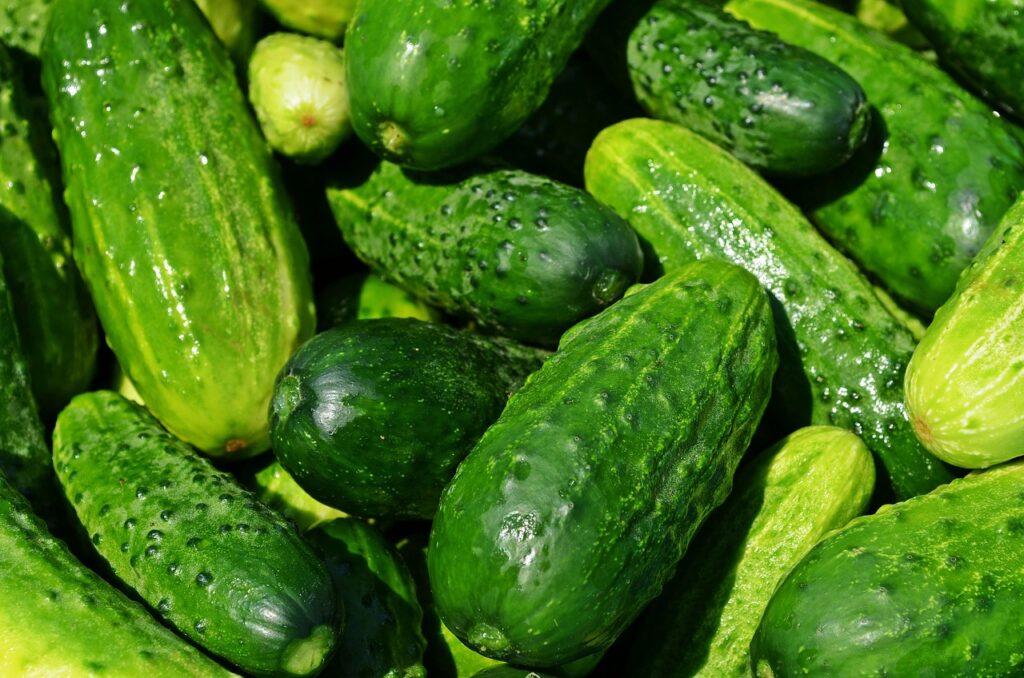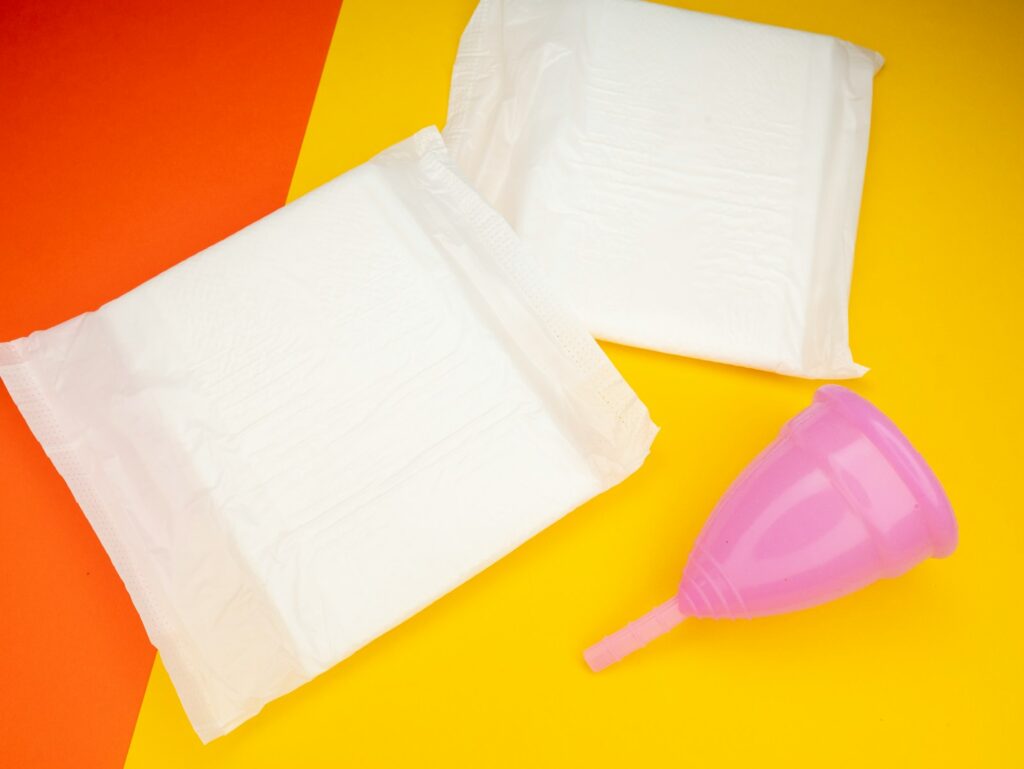A multistate outbreak of Salmonella Montevideo infections linked to contaminated cucumbers has prompted extensive investigations by the U.S. Food and Drug Administration (FDA) and the Centers for Disease Control and Prevention (CDC), in collaboration with state and local health partners. This significant public health concern has led to widespread product recalls across the nation, affecting various retail and food service sectors.
The investigation traced the source of these illnesses to cucumbers grown by Bedner Growers, Inc., located in Boynton Beach, Florida, and subsequently distributed by Fresh Start Produce Sales, Inc., of Delray, Florida. The breadth of this incident underscores the critical importance of robust food safety protocols throughout the entire supply chain, from cultivation to the consumer’s table.
This article provides an in-depth look at the initial phases of the Salmonella outbreak, the severe health risks associated with the infection, the rigorous investigative methods employed by regulatory agencies, the gravity of the Class I risk classification assigned to these recalls, and the specific actions taken by major retailers to withdraw affected products from the market, ensuring public safety.
1. **The Initial Outbreak and Identification**The initial outbreak of Salmonella Montevideo infections was first reported in a multistate investigation led by the FDA and CDC. This probe quickly identified cucumbers grown by Bedner Growers, Inc., based in Boynton Beach, Florida, as the primary source of contamination. These cucumbers were subsequently distributed by Fresh Start Produce Sales, Inc., located in Delray, Florida, reaching a wide array of retailers, distribution centers, wholesalers, and food service distributors.
The distribution period for the potentially contaminated cucumbers spanned from April 29, 2025, to May 19, 2025. The first significant public action occurred on May 19, 2025, when Bedner Growers, Inc., initiated a recall for cucumbers sold directly to consumers at Bedner’s Farm Fresh Market. This market operates in three Florida locations: Boynton Beach, Delray Beach, and West Palm Beach, with sales of affected products occurring between April 29, 2025, and May 14, 2025.
Furthermore, Bedner Growers, Inc., also recalled cucumbers sold to its wholesale distributor, indicating a broader reach for the potentially contaminated produce. As the investigation progressed, the FDA confirmed that contaminated products had been available at both restaurant and retail locations, signifying a widespread exposure risk across various consumer points of contact. The rapid identification of the source was crucial in mitigating further spread of the illness.
By May 16, 2025, a total of 26 individuals across 15 states had been reported as infected with the outbreak strain of Salmonella Montevideo. Epidemiological data available for 23 of these individuals indicated that 9 had required hospitalization, underscoring the severity of the infections. Out of 13 people interviewed at that early stage, 11 (85%) explicitly reported consuming cucumbers, further strengthening the link to the recalled produce and guiding the subsequent, extensive recall efforts.
Read more about: Buckle Up, Boomers! 12 Legendary Rides from Your Youth That Are STILL a Total Blast to Drive
2. **Symptoms of Salmonella Infection**Salmonella infection, medically known as salmonellosis, typically manifests within 12 to 72 hours after ingesting food contaminated with the bacteria. The most common symptoms include diarrhea, fever, and abdominal cramps. These symptoms generally persist for a duration of four to seven days, during which individuals may experience significant discomfort and disruption to their daily lives.
Certain demographics are particularly susceptible to developing more severe infections. This includes children younger than five years old, the elderly, and individuals with compromised or weakened immune systems. For these vulnerable groups, a Salmonella infection can lead to more serious health complications, requiring prompt medical attention and, in some cases, hospitalization.
In more severe instances, individuals may experience symptoms beyond typical gastrointestinal distress, such as high fever, aches, headaches, lethargy, rashes, and even blood in their urine. The infection can also lead to dehydration, which may necessitate medical intervention to prevent further complications. While most people recover without specific medical treatment, these severe symptoms indicate a more serious progression of the illness.
Though rare, Salmonella infections can become fatal. According to the FDA, approximately 450 people die each year from salmonellosis. This occurs when the infection spreads from the intestines to the bloodstream and subsequently to other vital organs and parts of the body, including joints, spinal fluid, and the brain. It is important to note that while serious, many individuals who contract salmonellosis may experience no symptoms at all, making the identification of outbreaks challenging.
Read more about: You Won’t Believe How Gross These 14 Common Household Items Actually Are: Your Ultimate Germ Hotspot Guide!

3. **FDA’s Investigative Methods**The Food and Drug Administration (FDA), in close coordination with the Centers for Disease Control and Prevention (CDC) and various state and local public health partners, employed a rigorous and multi-faceted approach to investigate the Salmonella outbreak. A key component of this investigation involved advanced molecular techniques, particularly Whole Genome Sequencing (WGS) analysis, which proved instrumental in linking the illnesses to specific sources.
As part of a follow-up inspection conducted in April 2025, FDA investigators collected an environmental sample directly from Bedner Growers, Inc. This sample subsequently tested positive for Salmonella. Crucially, Whole Genome Sequencing analysis determined that this environmental sample contained a strain of Salmonella that genetically matched recent clinical samples obtained from individuals who had fallen ill in the outbreak, establishing a direct link between the farm environment and human sickness.
Further reinforcing the investigative findings, the FDA collected a product sample of Bedner Growers, Inc., cucumbers from a distribution center located in Pennsylvania. Laboratory analysis of this cucumber sample also detected Salmonella. WGS analysis of this product sample confirmed the presence of Salmonella Montevideo, which precisely matched the strain responsible for the illnesses observed in this particular outbreak, thereby confirming the contaminated produce as the vector.
Moreover, the analysis of the cucumber sample from the Pennsylvania distribution center yielded additional significant findings. A Salmonella Braenderup strain was also detected, and Whole Genome Sequencing determined that this strain matched one linked to certain illnesses in a previous 2024 outbreak. This earlier outbreak, involving Salmonella Africana and Salmonella Braenderup, was also likely associated with cucumbers grown by Bedner Growers, Inc., suggesting a recurring issue at the facility and highlighting the thoroughness of the FDA’s persistent investigative efforts.

4. **The Class I Risk Classification**The U.S. Food and Drug Administration (FDA) assigns a risk classification to product recalls to communicate the potential severity of health consequences to the public. For the products impacted by the cucumber-linked Salmonella outbreak, the FDA issued a Class I risk classification, the highest and most serious category. This designation was formally announced on September 15, 2025, for products initially recalled on May 20, 2025.
A Class I risk classification signifies “a situation in which there is a reasonable probability that the use of, or exposure to, a violative product will cause serious adverse health consequences or death,” according to the FDA. This stern classification underscores the gravity of the potential threat posed by consuming cucumbers contaminated with Salmonella. It serves as a strong advisory to consumers and businesses alike regarding the critical need to prevent further exposure.
Salmonella bacteria are well-known causative agents of salmonellosis, a gastrointestinal illness characterized by symptoms such as diarrhea, fever, and abdominal cramps. The presence of Salmonella in food products, especially those consumed raw like cucumbers, presents a direct pathway for infection. The Class I status indicates that the FDA assessed a high likelihood of severe illness or mortality if these contaminated products were consumed.
Consequently, individuals who had purchased or were in possession of the affected products were strongly advised not to consume them. The high-risk classification mandates immediate action from all stakeholders, from distributors to consumers, to remove these products from circulation and prevent any potential serious health outcomes that could arise from their consumption. The FDA’s issuance of this classification is a critical step in protecting public health during foodborne illness outbreaks.
Read more about: The Real Cost of Ownership: 10 Sedans That Become Money Pits After Five Years (And How to Avoid Them)
5. **Recalls by Key Retailers: PennRose Farms & Harris Teeter**Following the identification of contaminated cucumbers from Bedner Growers, Inc., and Fresh Start Produce Sales, Inc., a cascade of recalls was initiated by various retailers and distributors across the country to safeguard public health. Among the first to issue specific product recalls were PennRose Farms and Harris Teeter, responding to the widespread Salmonella threat.
Florida-based PennRose Farms issued a recall notice on May 21, 2025, for a significant volume of cucumbers. The company recalled 1,152 cases of cucumbers that had been supplied to them by Fresh Start Produce Sales. These cucumbers were repackaged into five-pound mesh bags between May 2 and May 5, bearing both Restaurant Depot and PennRose Farms logos. The affected products carried the UPC code 841214101714 and specific lot numbers: 48-122, 48-123, 48-124, and 48-125. These recalled cucumbers were distributed to Restaurant Depot distribution centers located in New Jersey, Georgia, Florida, Illinois, and Ohio.
Grocery store chain Harris Teeter also issued its own recall on May 20, 2025, demonstrating its commitment to consumer safety. The recall at Harris Teeter included not only the fresh cucumbers themselves but also various vegetable trays that contained the potentially contaminated produce. Consumers were advised to check for fresh cucumbers with UPC 2040620000. The recall also encompassed large vegetable trays identifiable by UPC 7203689327 and smaller vegetable trays with UPC 7203689328.
These proactive recall measures by PennRose Farms and Harris Teeter were critical steps in removing contaminated food from the market. They served as early indicators of the extensive reach of the affected cucumbers and highlighted the necessity for consumers to remain vigilant and verify the source of their produce. Such specific product identification details are crucial for consumers to determine if items in their possession are subject to recall.
6. **Recalls by Key Retailers: Kroger, Ukrop’s & Walmart**The ripple effect of the Salmonella outbreak extended to several other major grocery retailers and food service providers, leading to further recalls of cucumber-containing products. These actions underscored the pervasive nature of the contamination originating from Bedner Growers, Inc., and its distributors.
Kroger, a prominent supermarket chain, also saw affected products on its shelves. On May 20, 2025, Kroger, with the assistance of Supreme Service Solutions LLC, initiated a recall for approximately 50 Yummi Sush-branded products. This extensive list of recalled items primarily consisted of various sushi rolls and platters that incorporated vegetables, including the potentially contaminated cucumbers. A comprehensive list of these specific products was made available on the FDA website to inform consumers.
Ukrop’s Homestyle Foods, LLC, another key food producer, issued a related recall on May 21, 2025, for its marinated cucumber salad products. The recall included 16-ounce, 32-ounce, and bulk five-pound packages of the marinated cucumber salad, specifically those with sell-by dates ranging from May 11, 2025, through May 26, 2025. These products were sold at multiple retail locations, including Food Lion stores in Virginia and North Carolina, Harris Teeter in Williamsburg, Virginia, Kroger stores in Virginia, West Virginia, Ohio, and Kentucky, Libbie Market in Richmond, Virginia, and Ukrop’s Market Hall also in Richmond, Virginia.
Walmart, one of the nation’s largest retailers, also took action to protect its customers. On May 22, 2025, Walmart recalled Marketside brand cucumber products from select stores located in Texas. This recall specifically targeted Marketside Fresh Cut Cucumber Slices, identifiable by UPC 62969, and included all date codes up to May 24, 2025. These particular products were available for sale in the affected Texas stores between May 13, 2025, and May 20, 2025. These successive recalls across such diverse and widely accessible retailers highlighted the broad distribution and critical need for public awareness and action.

7. **Expanding Retailer Recalls: Target, Mai Sushi & More**Following the initial wave of recalls, the scope of affected products broadened considerably as more retailers and food service providers identified their reliance on Bedner Growers, Inc. cucumbers. This expansion underscored the extensive distribution network of the contaminated produce, necessitating further actions to safeguard public health across various market segments.
Target, a major national retailer, was among the companies that conducted an additional recall for products containing the contaminated cucumbers. This proactive step by Target, along with other entities, aimed to ensure that consumers were alerted to potential risks associated with items sold under various brands that sourced cucumbers from Bedner Growers, Inc.
Several specific brands and product lines were impacted by these expanded recalls. Mai sushi, for instance, initiated recalls for various sushi rolls and boxes that incorporated the potentially contaminated vegetables. Other brands such as Kings, Isabelle’s Kitchen Inc., and Maple Avenue Foods also recalled their prepackaged salads, recognizing the ingredient contamination risk.
Supreme Produce, a distributor of fresh-cut salads and vegetable trays, also recalled its relevant products. Similarly, Snowfruit and Snowfox brands recalled their fresh-cut cucumbers and sushi items, demonstrating the varied forms in which the tainted produce reached consumers, from raw form to prepared meals.
8. **Recalls Beyond Major Chains: Specialized Products and Brands**The ripple effect of the Salmonella outbreak extended far beyond widely recognized supermarket chains, reaching a diverse array of specialized products and food service providers. This complex web of distribution highlighted the challenge of quickly identifying and isolating contaminated ingredients once they enter the broader food supply chain.
Companies like East Coast Fresh, TOPS, Wellsley Farms, Weis, Ahold, Jack and Olive, Created Fresh, and Spring and Sprout were compelled to recall a range of products including salads, salsas, and other items that contained salsa made with Bedner Growers cucumbers. These extensive recalls covered a broad spectrum of prepared foods available across different retail environments.
Further demonstrating the widespread nature of the contamination, brands such as Read to Eat and Star Market recalled their Greek salad products. Additionally, Big Y Foods initiated recalls for its made-to-order sandwiches, wraps, and paninis, all of which likely used the affected cucumbers as an ingredient. These actions emphasized the importance of vigilant sourcing and immediate response from all points of the food supply chain.
TGD Cuts, a producer of fresh-cut vegetables and prepared items, also issued specific recalls. This included their salsa products, available in hot and mild varieties in both 6/12 ounce and 5-pound packages. The recall also extended to various cucumber preparations, such as cucumber sliced/grape tomato 50/2oz, cucumber sliced unpeeled 5lb, cucumber sliced unpeeled 50/2oz, and cucumber spears 50/2oz. These detailed product specifications were crucial for consumers and businesses to identify and remove all potentially contaminated items from circulation.

9. **Nationwide Reach: The Outbreak’s Geographic Impact**The Salmonella Montevideo outbreak quickly expanded its footprint across multiple states, demonstrating the wide distribution of the contaminated cucumbers. Initially, as of May 16, 2025, the Centers for Disease Control and Prevention (CDC) reported 26 individuals infected with the outbreak strain across 15 states. These states included Alabama, California, Colorado, Florida, Illinois, Kansas, Kentucky, Michigan, North Carolina, New York, Ohio, Pennsylvania, South Carolina, Tennessee, and Virginia.
As the investigation continued and more cases were identified, the geographic reach of the outbreak broadened. By June 30, 2025, the total number of infected individuals had risen to 69, reported from 21 states. The additional states affected included Georgia, Indiana, Maryland, Massachusetts, Mississippi, and New Jersey, indicating a significant nationwide spread of the foodborne illness.
The widespread product distribution of the contaminated cucumbers, reaching “Nationwide” as explicitly stated by the FDA, was a key factor in the broad geographic impact of the outbreak. From initial sales at Bedner’s Farm Fresh Market in Florida to extensive distribution through Fresh Start Produce Sales, Inc. to retailers, distribution centers, wholesalers, and food service providers, the cucumbers reached a vast consumer base across the country.
This extensive reach underscored the critical need for rapid communication and coordinated recall efforts across state lines and through diverse retail channels. The ability of the Salmonella strain to affect consumers in numerous states highlighted the interconnectedness of the national food supply and the potential for a localized contamination event to become a widespread public health issue.
10. **A Recurring Concern: Connections to the 2024 Outbreak**The 2025 Salmonella Montevideo outbreak was not an isolated incident for Bedner Growers, Inc., as FDA investigations revealed a concerning historical connection to previous foodborne illness events. The follow-up inspection conducted by FDA investigators in April 2025, which ultimately identified Salmonella in an environmental sample matching the 2025 outbreak strain, was not arbitrary.
This inspection was specifically initiated in response to earlier outbreaks in 2024, involving Salmonella Africana and Salmonella Braenderup, which were also linked to cucumbers grown at Bedner Growers, Inc. This proactive approach by the FDA suggested an ongoing monitoring of the facility due to previous food safety concerns.
Crucially, additional analysis of the product sample of Bedner Growers, Inc., cucumbers collected from a Pennsylvania distribution center further solidified this recurring pattern. Beyond the Salmonella Montevideo strain directly linked to the 2025 outbreak, laboratory analysis also detected a Salmonella Braenderup strain in the same sample.
Whole Genome Sequencing determined that this Salmonella Braenderup strain matched one linked to certain illnesses in the previous 2024 outbreak. This finding strongly indicated a recurring contamination issue at the facility, underscoring the persistence of certain Salmonella strains within its environment and highlighting the importance of comprehensive long-term prevention strategies.

11. **Essential Consumer Guidance: What to Do and How to Protect Yourself**In the face of a widespread food recall, clear and actionable guidance for consumers and businesses is paramount to preventing further illness. The U.S. Food and Drug Administration (FDA) issued strong recommendations for anyone who may have purchased or come into contact with the potentially contaminated cucumbers.
Consumers who were unsure about the origin of cucumbers in their possession were advised to discard them immediately. Businesses, including retailers and food service establishments, were explicitly instructed not to sell the recalled produce and to notify any customers who might have consumed the affected products before the recall was initiated. For individuals who had purchased recalled items from stores like Walmart, Kroger, or Harris Teeter, the FDA confirmed that they could return the products to the point of sale for a refund.
Beyond disposing of the contaminated food, thorough cleaning and sanitization of surfaces and utensils that may have contacted the cucumbers were emphasized. At home, this included washing cutting boards, countertops, refrigerator walls and shelves, and any other utensils with hot, soapy water or in a dishwasher. Following washing, these surfaces should be sanitized with a solution of one tablespoon of chlorine bleach to one gallon of hot water, then dried with a clean cloth or paper towel that has not been previously used.
For those with pets, special care was advised to prevent cross-contamination, particularly when preparing pet food. Pet dishes should be thoroughly washed as soon as pets finish eating, and vulnerable individuals such as children, the elderly, or those with weakened immune systems should be prevented from handling or being exposed to potentially contaminated food or pets that have consumed it.
Finally, the FDA stressed the importance of seeking medical help if an individual felt unwell after eating a recalled product, especially if symptoms were severe or persistent. Consumers with specific questions about the recall and their personal medical risk were strongly encouraged to contact their healthcare provider for tailored advice and assessment.
Read more about: Unmasking the Discount Deception: Your Essential Guide to Fair Pricing and Service Rights
12. **The Outbreak Concludes: Final Statistics and Lessons Learned**After a thorough investigation and extensive public health measures, the Centers for Disease Control and Prevention (CDC) officially declared the Salmonella Montevideo outbreak linked to Bedner Growers, Inc., cucumbers over as of June 30, 2025. This declaration marked the culmination of collaborative efforts between the FDA, CDC, and various state and local public health partners.
The final statistics for the outbreak revealed a significant public health event, with a total of 69 people infected with the outbreak strain of Salmonella reported from 21 states. Of the 60 individuals for whom hospitalization information was available, 22 required hospitalization due to the severity of their infections. Fortunately, the outbreak resulted in no reported deaths.
Epidemiologic and traceback information unequivocally demonstrated that cucumbers grown by Bedner Growers, Inc., in Boynton Beach, Florida, were the definitive source of illnesses in this outbreak. The comprehensive investigation, including Whole Genome Sequencing, provided the scientific evidence necessary to link the contaminated produce directly to human sickness.
By the time the outbreak was declared over, all recalled product was past its shelf-life and was no longer expected to be available for sale in stores. This natural expiration, combined with widespread recall efforts, helped ensure that the immediate threat to public health from the specific contaminated lot had subsided.
While this particular FDA investigation is complete, the agency remains committed to working with all stakeholders to advance critical work to improve the prevention of future outbreaks. The incident serves as a stark reminder that food safety is a shared responsibility, encompassing growers, packers, distributors, retailers, and regulators, all playing vital roles in protecting consumer health.
This comprehensive look at the Salmonella Montevideo outbreak linked to Bedner Growers’ cucumbers underscores the intricate challenges of food safety and the vigilant efforts required from federal agencies, distributors, and retailers. While this particular outbreak has concluded, its detailed investigation and the subsequent widespread recalls serve as a crucial reminder for both the industry and consumers about the continuous need for diligence in preventing foodborne illnesses and safeguarding public health.











